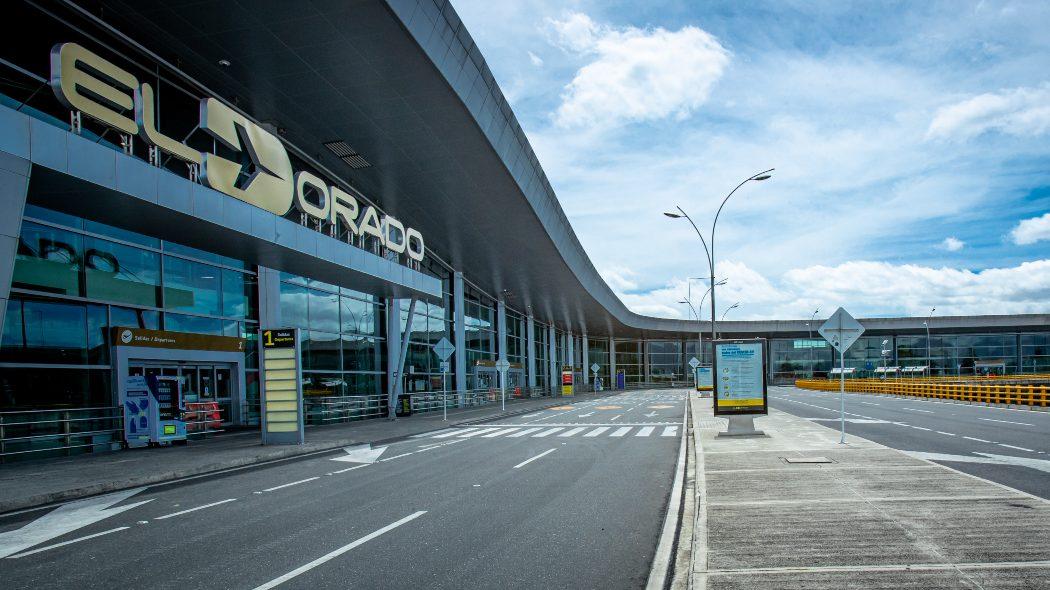Source: ACI-LAC
1.- What do you think is necessary to stimulate innovation in the airport industry and what innovations will be most needed in the coming years in Latin America?
Airport infrastructures have the great challenge of being at the forefront and respond to the needs of the changing world, especially to ensure that they can have a more sustainable operation and in harmony with the environment, and at the same time achieve efficiencies that allow them to be more profitable and meet current and future needs.
That is why it is necessary, as we have been doing at El Dorado airport, to transform strategies to meet business objectives while being sustainable.
Thanks to our sustainable infrastructure, El Dorado is the first airport in the world to be certified as LEED Platinum in operation and maintenance of existing buildings, version 4.1 – awarded by the US Green Building Council. This recognition is the highest of its kind and is awarded only to buildings that meet outstanding sustainability standards.
In order to obtain this certification, the infrastructure and operation were evaluated for 12 months in aspects such as:
- Energy efficiency.
- Efficient water consumption.
- Waste management policies.
- Quality of the indoor environment / Human Experience.
- Integration with the city and the transportation system and innovation.
Thus, in addition to offering first class infrastructure, high quality services, agile operation and high service standards, airports must continue to strengthen their sustainability strategy and responsibly manage natural resources to contribute to climate change mitigation and adaptation.
Regarding future innovations, at El Dorado we implemented the corporate strategy within the components of mitigation, compensation and adaptation, and established the following goals:
- 57% reduction by 2028 with respect to 2018.
- Achieve carbon neutrality of emissions by 2025, define an adaptation plan for 2025, using as a reference the assessment and characterization of risks and opportunities.
- We are committed together with the airport sector to be net zero by 2050, in addition, we maintain and ratify the commitment to low carbon management through the Airport Carbon Accreditation certification of the ACI-LAC (we are currently at Level 2 Reduction).
2.- How much progress has Bogota’s El Dorado airport made in this context towards the goal of decarbonizing the industry and what message would you give to Latin American airports to achieve the decarbonization goal?
In the operation of El Dorado Airport, to date we have reduced Greenhouse Gas emissions by 41%.
We have achieved this through:
- The identification and monitoring of scope 1 and 2 greenhouse gases through the application of the Green House Gas Protocol (GHG Protocol) methodology and the ACERT quantification tool designed for the Airport Carbon Accreditation (ACA) program of Airport Council International (ACI).
- The implementation of the Science Based Targets© methodology with the purpose of aligning the objectives and targets adopted by El Dorado with the latest climate science and thus contribute to meeting the objectives of the Paris Agreement 2015.
- The implementation of energy efficiency projects such as:
- Photovoltaic system, we installed 10,369 solar panels on the roof of the airport with a capacity of 2,800 kWp DC that allow a contribution of approximately 12% of the total demand of the terminal, consolidating El Dorado as the first airport in Latin America with a photovoltaic system of this capacity.
- Retrofit project, we installed 25,863 LED technology lights, contributing to the sustainability of the air terminal, since 70% of these lights are made of recycled material under 3D printing and an estimated 51% reduction in energy consumption compared to conventional lighting.
- Intelligent and autonomous infrastructure, including automation and integration of electrical, lighting, air conditioning, electromechanical and hydraulic systems, which allows us to have metrics per passenger transported for strategic decision making and thus optimize efficiency in energy demand and water systems.
- Creation of alliances and synergies with the public and private sectors.
- Inclusion in the National Carbon Neutrality Program of the Ministry of the Environment in Group 4 – highest category.
- Launching of the strategy Conexión con la ANDI, to promote a sustainable business model, strengthening the circular economy plan.
The message for the Latin American airports:
Sustainability is the transversal axis of the operation and functioning of airports, with this in mind, we must develop actions that raise economic, social and environmental performance since it is not possible to have development without the balance of the three components. To this end, initiatives must be aimed at strengthening resilient infrastructure, strategic relationships, ethics and transparency, competitiveness, human talent, and improving the experience for users and customers.
Additionally, within the roadmap towards decarbonization, it is a priority to share best practices, data and experiences that enrich the strategies to combat climate change in the operation of airports.
3.- Bogota’s El Dorado airport has several initiatives aimed at reducing carbon emissions. How is the work of involving your partners – suppliers, employees, public – in this way of understanding the business?
From Opain, we have identified and prioritized our stakeholders, to involve them in determining the relevant issues in the operation of the airport and ensure that their activities are effective in generating value to society, enriching the sustainability strategy for El Dorado.
This seeks to create synergies among the businesses, generate awareness among our stakeholders and strengthen internal and external capabilities for the operation.
Our strategy is aimed, among other things, at bringing neighboring communities closer to the airport and the articulation of suppliers and contractors, fulfilling the purpose of seeking competitiveness and sustainability. In addition, we continuously involve Opain’s employees and space holders in training and lectures so that they know and identify the actions taken by El Dorado in this area, and we maintain constant communication with the authorities that regulate us to generate efficient processes and ensure compliance with regulatory standards.


